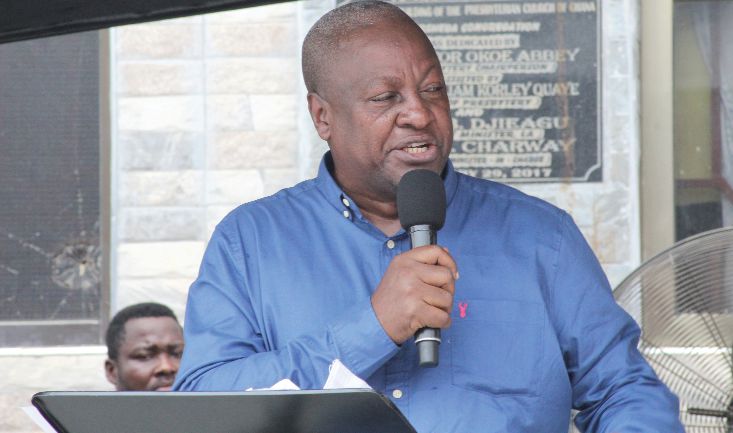
Come clean on economic data: Former President Mahama challenges govt
Former President John Mahama has challenged the government "to come clean" on data it churns out on the health of the economy.
He explained that a recent report by the International Monetary Fund (IMF) vindicated his party’s position that the country's macroeconomic indices, as reported by the Ministry of Finance and the Bank of Ghana (BoG), were untrue.
In a media interaction last Thursday that discussed topical issues on the economy, Mr Mahama said the government needed to clarify the “discrepancy” in the data, especially when it came to budget deficit and gross international reserves to help create transparency and boost investor trust and confidence in the economy.
Mr Mahama said although the BoG had reported the country’s reserves to be at about $8 billion, the Article IV Consultation Report that the IMF released in December last year showed that the reserves were at $5.1 billion equivalent to about 2.7 months of import cover.
That, he said, showed a discrepancy of almost $3 billion.
“We have always tried to align our data with the international institutions in order to create transparency,” Mr Mahama said.
“You need transparency in order that investors can have trust in your economy but where there is no transparency in the figures that you put out, then there is a problem,” he said at the event that was opened by a short presentation from the former President and followed by questions and answers.
He added that although the National Democratic Congress (NDC) in Parliament had called out the Bank of Ghana and the Ministry of Finance “and said that the figures they are putting out are cooked,” nothing had been done.
Mismanagement
The former President also accused the government of ostentatious borrowing, which he said was spent on consumption items rather than investments in capital projects that had the potential to increase productivity and generate revenue to repay the debts.
In the media engagement that was broadcast live on social media platform, Facebook, Mr Mahama said President Nana Addo Dankwa Akufo-Addo’s administration had mismanaged the economy and was now “cooking the books using creative accounting and cooked data” to hide the true picture of their actions.
Above the line
With regard to the budget deficit, which measures the gap between government’s expenditure and its revenues, former President Mahama said the government was treating certain figures on public spending outside the portfolio of expenditures that should be used to calculate a budget deficit contrary to global best practices.
“They are treating them as below the line when they should be treated as above the line. The IMF has realised this and brought all that above line and it is showing a deficit of seven per cent of gross domestic product (GDP).
“I am saying that if you add the factoring which is the payment of contractors using the Fidelity Bank system, it takes the budget deficit to even eight per cent of GDP.
“So, it is not me saying it. The challenge now is the government should come and explain the difference between the last Article IV figures that the IMF has issued and the current figures that the government has given us,” he said.
He also said a new NDC administration with him as president would ensure transparency in the computation of national data, adding that “when you cook the data, the reality of the people’s lives will expose you.”
Cocoa sector
Turning his attention to the cocoa sector, Mr Mahama said the fortunes of the sector had dwindled, resulting in declining cocoa production and a near collapse of the once premier cocoa buying company, the PBC Limited.
He said a new NDC government would ensure that cocoa farmers were given inputs in accordance with their farmers and also revert to the cocoa pricing regime that places the farmer first.
The former President mentioned the cocoa roads and free cocoa fertiliser programme as some of the initiatives that the government would use to revamp production in the sector.
